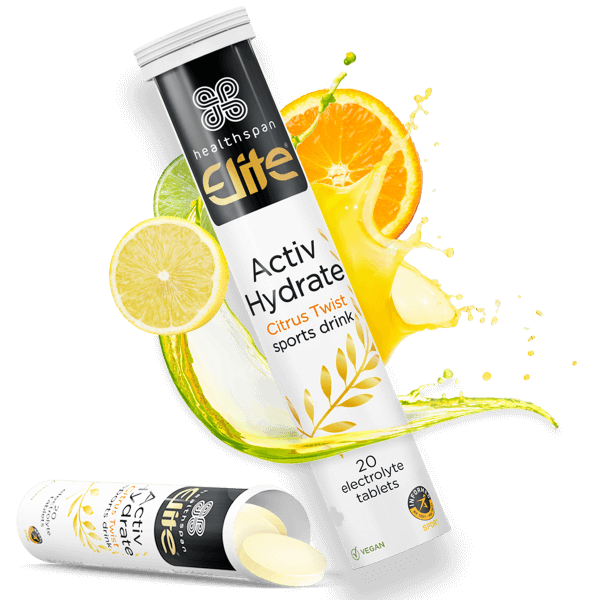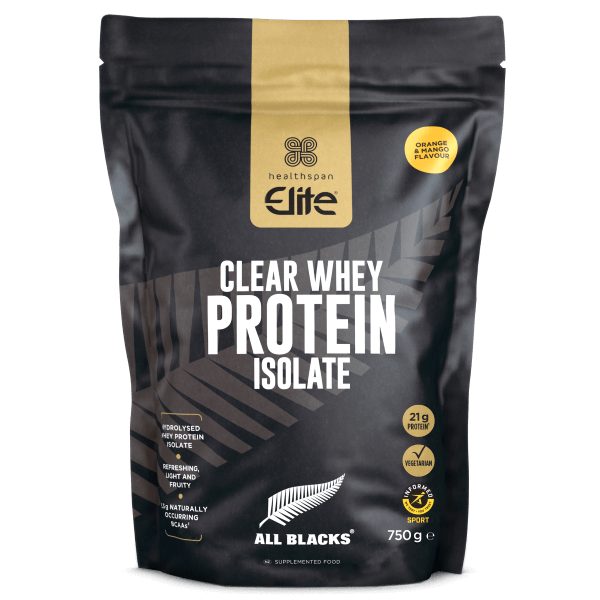Dr Nic Gill, All Blacks Strength and Conditioning Coach, explores how best to prepare for a training session, how to get the most out of it, and how to recover effectively.
Contents
Before Training | During Training | After Training | Goal SettingBefore training
Mental preparation
Deciding how best to prepare for training, from a mental and physical perspective, is complex because it depends on the training session you're going into.
For example, if it's a session where you need to learn some plays or make decisions, that's a big cognitive load, so preparation may involve checking notes and watching some videos of previous training sessions or matches.
Physical preparation
For the physical aspect, you want to get the body moving, loosen up any key joints, address any hotspots with some sort of manual therapy or trigger pointing massage, so that whatever the session may be, the body is ready to go.
But a part of being physically ready is your nutritional status. When did you last eat? What was it? When did you last hydrate? And then for the session itself: what are you getting ready for?
Preparation supplementation
Supplements can be key in aiding training. I know a lot of our All Blacks athletes like to take a pre-workout during a gym session in the afternoon if they're a bit tired.
In that regard, the addition of some caffeine, or beta-alanine to help buffer the lactic acid build-up, can really help athletes get what they need out of those tougher sessions.
The best supplements to take before training are dependent on the training session, the stimulus that's going to be involved and the needs of each individual player: what they're trying to achieve during the session and how much fuel they need.
Eating before a session is essential, because sometimes training could be three or four hours after you last ate, and if you don't have enough fuel on board, you're not going to get through the session like you otherwise could.
When the players last ate is considered when looking at their supplement regime, so if it's going to be a tough session then they will tend to have a little more carbohydrate through some energy gels.
I think it's important to fuel during the session, so you can get what you need out of it, and also adding something stimulating like caffeine, to help boost the intensity if you're feeling a bit flat.
During training
Hydration
During training, we're losing a lot of fluid through sweat, so we need to make sure the fluid is being replaced. The best way to have it replaced is to have an electrolyte in there to help absorption.
If you're thirsty, it's often a little late and you should have been drinking earlier; so, drink to avoid getting thirsty. Little and often is important to keep the hydration level up.
Performance supplementation
The range of supplements and products we use during training is vast, because every All Black is unique, what they need is very different, every single day.
A good example of this would be that we've got some athletes who are trying to increase muscle mass, so their training and nutrition programme reflects that.
Questions we ask are: How many calories are they eating? What sort of calories are they eating? What sort of supplements are they using, are they using a mass gainer, a whey protein isolate? Are we cycling in creatine and beta-alanine to try and help with training quality and quantity within the gym?
It's a matter of understanding what those goals are and then putting a training plan in place that's complemented by nutrition and supplement plans. The range of products we use is huge, and very much targeted for different needs.
Putting on lean muscle mass? We'd be looking at a mass gainer.
Trying to get stronger or practicing repeating tasks on the field? Creatine becomes really important.
Trying to improve our tolerance of high work rate? Beta-alanine is the key to help buffer lactic acid.

Elite Activ Hydrate
Delicious fruit-flavoured electrolyte drink to replenish minerals lost during exercise
- Replenishes the essential electrolytes sodium, calcium, magnesium and potassium
- Contains 300mg sodium
- Informed Sport-accredited
After training
Recovery
Recovery is important, mentally and physically, especially for the All Blacks because what we do isn't easy.
My main role is physical development, making sure the players are ready to play every Saturday, so although I'm trying to manage physical load and stress, a big part of that is also the mental load that comes with being in the All Blacks.
There's always a lot going on, whether it's promotional activity, media, meetings, it takes a toll, so we must make sure we manage the mental and physical load.
We manage this by making sure we get a good recovery program in place. It looks a little different based on the time of week, depending on the session we're trying to recover from.
Mostly, we try and make sure we get in some water, a massage, eat very well before, during and after because if we've trained hard, the body needs energy to recover and repair. Often, we'll have a protein isolate shake after training to make sure the body has everything it needs to bounce back for the next day.
The number of rest days, or the amount of rest you require, is dependent on what you're trying to recover from. For instance, when we play a match against South Africa, we must take the altitude into account, it's sunny, hot, we lose a lot of fluid through sweat, make 250 tackles, play a solid 80 minutes, and then we get on a plane and fly back to New Zealand.
It takes 24 hours with a 12-hour time shift. The recovery is massive. We need days to bounce back from that; sleep, nutrition, just getting the body moving and recovered from what we're put it through.
In comparison to a training session that's just two hours on the field, where it's not quite at game intensity, but still working hard, we may only need a day to recover from that before we train hard again.
It's all dependent on how physically taxing the session was. Age is another thing to take into consideration; the younger athletes bounce back much quicker, the older players need a little longer for the body to get going again.
Active recovery
You should always exercise during the recovery process. There is science behind this that shows active recovery can be as or more beneficial than doing nothing.
Knowing myself, I feel worse if I don't do anything than if I've done something – anecdotal feedback and observations of athletes over time is just proof in the pudding. Whether that's lifting weights, getting in a pool, doing some light cardio work… I encourage people to incorporate movement as part of any recovery, and you'll bounce back quicker.
Not only will you return to how you felt in a better state, but you'll get more out of your next session.
Recovery supplementation
In terms of supplementing and recovery, it depends what we're trying to achieve from the session.
For me, I take the players into the gym, we're trying to get powerful and quick, and for some of the players we're trying to increase lean muscle mass; for that, we need amino acids and protein. A mass gain protein formulation, or a protein isolate, is what we'll use post-gym to make sure the building blocks are there for the athlete to recover, adapt and grow.
If we're looking at a field training session, we're looking at tackling, running, maybe we've got some muscle damage and inflammation, we need to recover from that to be able to do it again the next day. A turmeric or blackcurrant extract is really important from an anti-inflammatory perspective, trying to help the body recover, repair and stay healthy.
Obviously, there are a number of things that are dependent on the session, the stress and what we're trying to help the body to do.

Elite All Blacks Clear Whey Protein Isolate
Clear, refreshing and light hydrolysed whey isolate
- Innovative alternative to traditional protein powders that doesn't require milk
- Refreshing, light and fruity alternative to traditional whey
- 21g hydrolysed whey protein isolate per serving
Goal setting
Setting training goals is important for every athlete because every session is important. In the All Blacks we only have limited time together; we assemble for a test series and typically have five training sessions on the field to get ready, so every session has to count.
What are you trying to achieve in every session? Are there physical goals you want to get out of it? Are there mental goals you want to get out of it? After the session, all you need to do is reflect: "Did I get out of it what I needed to? If not, how am I going to improve for the next session?"
The best piece of advice that I give for helping people build up to their training goals is to go through the process of asking themselves these questions:
- What is it I want to achieve?
- When do I want to achieve it by?
- How am I going to do it?
So, we need a time element to it, we need specifics of what it looks like: can it be measured? Just saying "I want to be a better rugby player," doesn't cut it because what does that look like, and how are you going to do it?
Break up the goals into really specific measurable targets, set a date when you're trying to achieve it by – and it doesn't mean you're going to get there, but by having that date, we can check how much progress has been made.
If progress has been made then it means whatever you have put in place is working; if you're not quite making any progress, such as passing as well left-to-right as you are right-to-left, then maybe the drills you're using aren't cutting it. That's when you review and set another plan in place.










